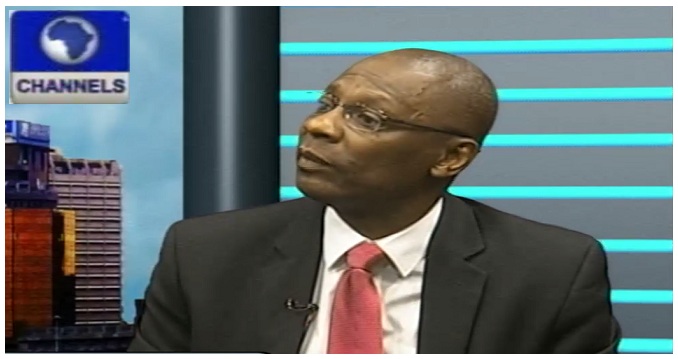The deputy governor, financial systems stability, of the Central Bank of Nigeria (CBN), Kingsley Moghalu on Wednesday said that lending to non-priority sectors and to operators of the capital market by commercial banks in Nigeria were key factors responsible for the near-collapse of the nation’s capital market in 2009.

Mr. Moghalu disclosed this while he was making a submission at the resumed hearing of the House of Representatives ad-hoc committee investigating the collapse of the capital market.
He said that the nation’s financial system would have collapsed if the CBN had not exercised its responsibility as the lender of last resort as he replied to questions by members of the ad-hoc committee on who authorised the CBN to nationalise the bank.
The CBN in November 2008, injected N602 billion into eight banks that were almost running aground.
Giving a breakdown of how some of the banks manipulated their share prices, Mr. Moghalu said that “Afribank PLC via a share buy-back arrangement manipulated its share price when it went to the stock market in 2007.”
He claimed the bank through the services of three stock broking firms bought 66 per cent of the bank’s offer using fictious name of 1,258 subscribers and at the end of the offer, they will announce that their offer was over-subscribed.
He also revealed that Finbank in August 2006 conspired with three companies incorporated by the bank to buy N2.8billion worth of its own shares between August 2006 and August 2008, adding that the bank will claim the offer was over-subscribed.
Another bank accused of the fraudulent shares buy-back was Intercontinental bank. The CBN deputy governor said that the bank bought 3.4million units of its share which constitute 29 per cent of the bank’s share value on the stock market between September 2007 and December 2009.
He gave a breakdown of the non-performing loans by the eight liquidated banks as below:
- Bank PHB – 40.86%
- Oceanic Bank – 44.35%
- Afribank – 47.0%
- Finbank – 47.45%
- Intercontinental bank – 48%
- Equatorial Trust Bank (ETB) – 57%
- Wema bank – 77%
- Spring Bank – 85%
He described the banks as ‘net-takers’ that are only surviving exchanges from the inter-bank rate markets’. He added that between 2008 and 2009 “the banks were also on ‘life-supports’, surviving on sub-ventures from the CBN such as the Expanded Discount Window and Standing lending facility.
Bank Consolidation
A member of the committee, Bimbo Daramola, raised the issue on how the bank consolidation of N25 billion forced on the bank’s was the reason why the banks were involved in the round-tripping of share buy-back in a bid to rush and make the N25 billion.
Mr. Moghalu noted that it was just eight banks that were culpable of the wrong-doing and not all the banks that sort to carry-out the consolidation. “Without the consolidation, the global financial crises would have wiped out all the Nigerians bank” he said.
He added that the knock-on effects of the global financial crisis and the capital flight of $15 billion also contributed to the crash of the capital market.
Another Member of the ad-hoc committe, Representative Usman Mohammed, noted that despite the huge investment of funds into the banks, the lending rate to the real is still poor. Responding to the observation, Mr Moghalu stated that “the most important obstacle and challenge to the nation’s real sector is the absence and lack of power and not interest rate”, adding that “loans to the agriculture sector has risen from 1% to 3% in the last one year.”
He also assured the hearing that with the ongoing reforms across the nation’s economic sector, the banks will start granting more loans to the sector once the reforms kick-off.
He further explained that banks lending has increased drastically due to AMCON’s purchase of all bad loans. “Just about 5% of banks loans are now bad loans” he stated.




